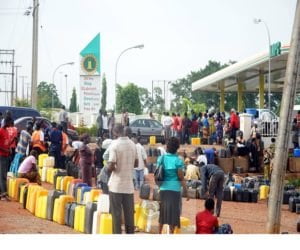
There are indications that fuel scarcity in the country may linger for a long time as Depot and Petroleum Products Marketers Association of Nigeria (DAPPMAN) also the oil marketers, under the umbrella of Major Marketers Association of Nigeria (MOMAN) prepares to embark on another strike. After calling for full “price liberalization” rather than “price modulation” with respect to Premium Motor Spirit (PMS), commonly known as petrol.
Mr Tunji Oyebanji, the Chairman the Major Marketers Association of Nigeria (MOMAN), in a statement on Thursday, said that only full price deregulation will bring about long term stability in the downstream sector. He also added that it was necessary for the major oil marketers to state their position because of the statement passed by Chief Timipre Sylva, Minister of State for Petroleum Resources.
Chief Timipre Sylva had announced that the government would implement a policy of “price modulation,” which means it will give effect to existing legislation enabling it to set prices in line with market realities through the Petroleum Products Pricing Regulatory Agency (PPPRA).
Mr Tunji Oyebanji speaking for the oil marketers, said the clear and obvious risk is that the country had never been able to increase pump prices under this law, leading to high and unsustainable subsidies and depriving other key sectors of the economy of necessary funds.
He added, that purchase costs and open market sales prices should not be fixed but monitored against anti-competitive and antitrust abuses by the already established competition commission and subject to its clearly stated rules and regulations.
“There is no country or economy where governments do not have the power to influence prices. Nigeria is no different with respect to any other commodity or product. Governments use economic tools such as taxes or interventions on the demand side or the supply side of the market and other administrative interventions to influence prices where it needs to.
“The problem here is that government has retained for itself by law the power and the responsibility to fix pump prices of PMS which is what puts it under so much pressure and costs the country so much in terms of under-recoveries or subsidies when it cannot increase prices when necessary to do so. “It makes sense to relieve itself of this obligation now when crude prices are low and resort to influencing prices using the same tools it does for any other commodity or item on the market.
“We want the market to determine the price. There should be a level-playing field. Everybody should have access to foreign exchange to be able to import and sell petrol at a pump price taking its landing and distribution costs into consideration.” The pricing system should allow internal equalization by marketers which would be both competitive and equitable.












